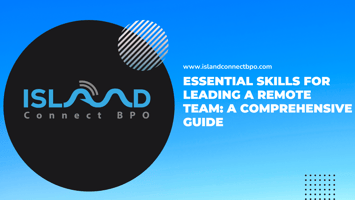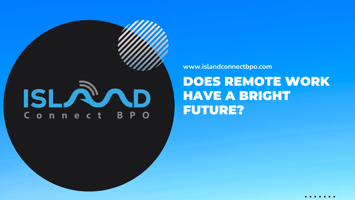Understanding Outsourcing and Its Functionality: Outsourcing is the practice of engaging an...
"Outsourcing vs. Insourcing: Making the Right Decision for Your Business"
In the dynamic landscape of modern business, one of the critical decisions that entrepreneurs and business leaders face is whether to outsource certain functions or keep them in-house, a dilemma that can significantly impact the success and efficiency of their operations. In this blog post, we'll delve into the pros and cons of outsourcing versus insourcing, helping you navigate this crucial decision-making process and determine what's best for your business.
Understanding Outsourcing and Insourcing
Before we delve deeper, let's clarify these terms:
-
Outsourcing: Outsourcing involves contracting out certain business functions or processes to external vendors or service providers. These functions can range from IT services and customer support to manufacturing and back-office tasks.
-
Insourcing: Insourcing, on the other hand, refers to keeping all business functions and processes within the organization, utilizing in-house resources and personnel to fulfill various roles and responsibilities.
Pros and Cons of Outsourcing
Pros:
-
Cost Savings: Outsourcing can often be more cost-effective than hiring and maintaining in-house staff, particularly for non-core functions or tasks that require specialized expertise.
-
Access to Specialized Skills: By outsourcing, businesses gain access to a global talent pool and specialized skills that may not be available in-house, leading to improved quality and efficiency in certain areas.
-
Focus on Core Activities: Outsourcing non-core functions allows businesses to focus their time, resources, and energy on core activities that directly contribute to their competitive advantage and strategic goals.
-
Scalability and Flexibility: Outsourcing provides scalability, allowing businesses to quickly adapt to changing demands and scale their operations up or down as needed without the constraints of maintaining a fixed workforce.
Cons:
-
Loss of Control: Outsourcing certain functions means relinquishing some degree of control over the quality, timing, and delivery of those services to external vendors, which can potentially lead to communication challenges or misalignment of expectations.
-
Security and Confidentiality Risks: Sharing sensitive data or information with external vendors may pose security and confidentiality risks, especially if proper safeguards and agreements are not in place.
-
Dependency on Third Parties: Relying heavily on external vendors for critical functions can create dependencies and vulnerabilities, leaving businesses vulnerable to disruptions or issues beyond their control.
-
Potential for Communication Challenges: Cultural differences, time zone disparities, and language barriers can sometimes result in communication challenges when working with outsourced teams, impacting collaboration and productivity.
Pros and Cons of Insourcing
Pros:
-
Greater Control: Insourcing allows businesses to maintain greater control over all aspects of their operations, including quality standards, processes, and decision-making.
-
Direct Oversight and Management: With in-house teams, businesses have direct oversight and management of their personnel, facilitating better communication, collaboration, and alignment with organizational goals.
-
Enhanced Security and Confidentiality: Keeping sensitive data and information within the organization minimizes the risk of security breaches or data leaks associated with sharing such information with external parties.
-
Cultural Cohesion: Insourcing fosters a strong organizational culture and sense of belonging among employees, promoting teamwork, loyalty, and a shared commitment to the company's mission and values.
Cons:
-
Higher Costs: Insourcing typically involves higher upfront costs associated with hiring, training, and retaining in-house staff, as well as ongoing expenses related to salaries, benefits, and infrastructure.
-
Limited Access to Specialized Skills: Depending solely on in-house resources may limit access to specialized skills or expertise that external vendors or contractors could provide, potentially hindering innovation and growth in certain areas.
-
Reduced Flexibility: Insourcing can be less flexible than outsourcing when it comes to scaling operations or adapting to fluctuations in demand, as businesses may be constrained by the size and capabilities of their in-house workforce.
-
Risk of Overhead and Underutilization: Maintaining a large in-house workforce can result in overhead costs and underutilization of resources during periods of low activity or seasonal fluctuations, impacting profitability and efficiency.
Making the Right Decision for Your Business
So, how do you determine whether outsourcing or insourcing is the right choice for your business? Here are some key factors to consider:
-
Nature of the Task or Function: Assess the nature and complexity of the task or function you're considering outsourcing. Is it a core function critical to your competitive advantage, or is it a non-core activity that could be delegated to external vendors without compromising quality?
-
Cost-Benefit Analysis: Conduct a thorough cost-benefit analysis to compare the potential savings, efficiencies, and risks associated with outsourcing versus insourcing. Consider not only the direct financial implications but also the long-term strategic impact on your business.
-
Availability of Skills and Resources: Evaluate the availability of skills, expertise, and resources both within your organization and in the external market. Determine whether outsourcing would provide access to specialized skills or technologies that are difficult to obtain in-house.
-
Risk Management and Compliance: Consider the risk management and compliance implications of outsourcing sensitive functions or data to external vendors. Ensure that proper contracts, agreements, and security measures are in place to mitigate potential risks and safeguard your business interests.
-
Strategic Alignment: Align your outsourcing or insourcing decisions with your broader business strategy and goals. Determine how outsourcing or insourcing certain functions aligns with your core competencies, growth objectives, and competitive positioning in the market.
-
Flexibility and Scalability: Assess the scalability and flexibility requirements of your business. Determine whether outsourcing would provide the agility and scalability needed to adapt to changing market conditions, customer demands, and growth opportunities.
-
Culture and Values: Consider the cultural fit and values alignment between your organization and potential outsourcing partners or in-house teams. Choose a sourcing strategy that fosters a collaborative, mutually beneficial relationship and reinforces your organizational culture and ethos.
In conclusion, the decision between outsourcing and insourcing is not a one-size-fits-all proposition but rather a strategic choice that requires careful consideration of various factors, including cost, control, flexibility, and strategic alignment. By weighing the pros and cons of each approach and aligning your sourcing decisions with your business objectives, you can make the right choice that best serves the interests of your business and drives sustainable growth and success in the long run.
Visit us at https://islandconnectbpo.com/
Or email us at info@islandconnectbpo.com to learn more.
Unlock virtual excellence with Island Connect – Your trusted recruiters in the Caribbean. Join us!



